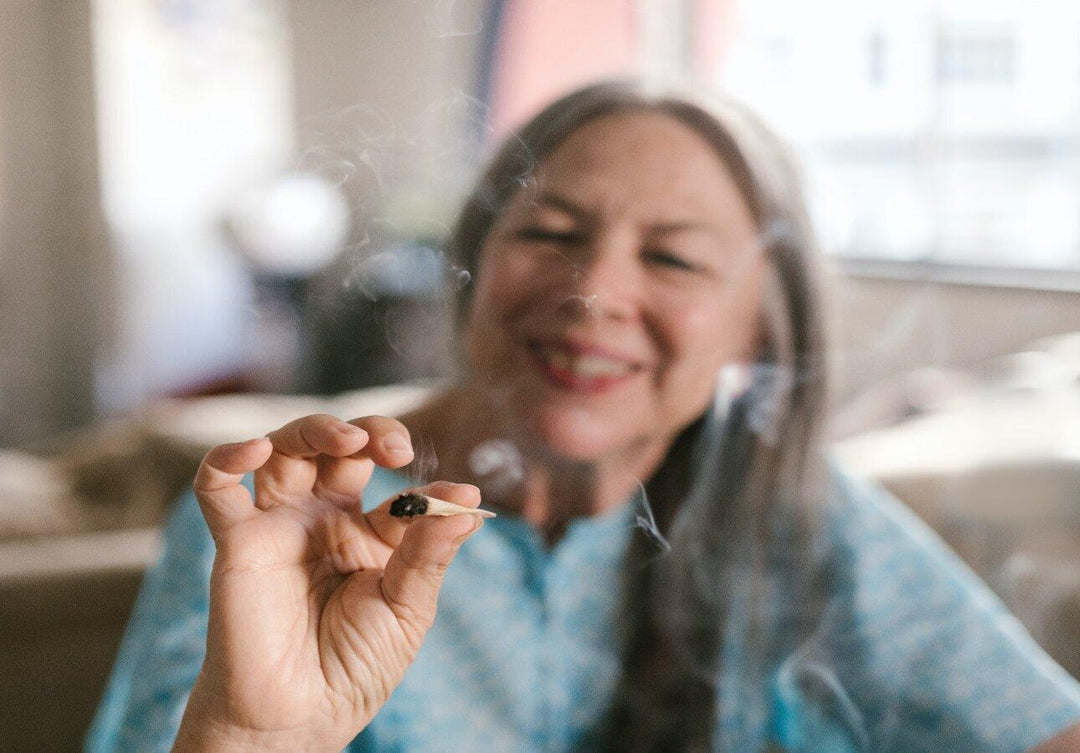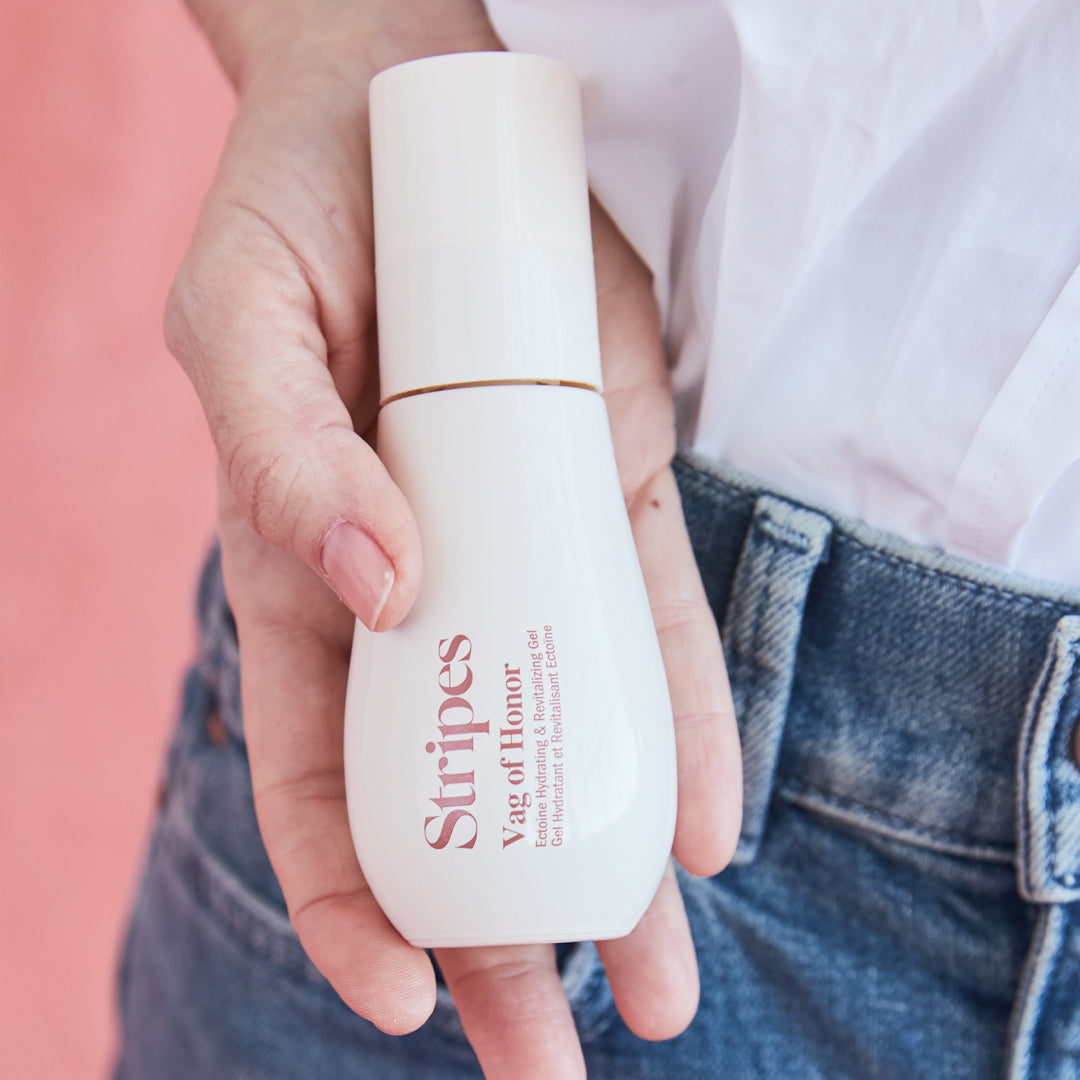It’s a stone(d) cold fact — more and more women are using cannabis to get relief from their menopause-related symptoms.
For newbies, delta-9-tetrahydrocannabinol (THC) is responsible for the intoxicating and for many, relaxing effects. Alternatively, there’s cannabidiol (CBD), the non-psychoactive compound of cannabis that has gained popularity for treating anxiety and various other conditions.
There’s been a lot of talk and lively discussion around the potential benefits of medical cannabis use, including improvements on measures of anxiety, mood, sleep, and relief from certain types of pain, as well as cognitive improvement after treatment. But can cannabis and CBD help with menopause changes? The jury is definitely still out.
Shaking out the facts on menopause and cannabis
In August 2002, the North American Menopause Society (NAMS) shared data from a study involving more than 250 perimenopausal and postmenopausal women who were intrigued by the concept of how cannabis or cannabinoids (the group of substances found in the cannabis plant) and its usage might affect specific symptoms.
The results suggested that many women (86 percent) used cannabis as an adjunct treatment for menopause-related symptoms via different modes of use, the most common being smoking (84.3 percent) and edibles (78.3 percent). Their main reason for use? Menopause-related disturbances of sleep and mood/anxiety.
The results for perimenopausal women proved to be a downer. According to NAMS researchers, perimenopausal participants (compared with postmenopausal participants) reported significantly worse menopause-related symptomatology, including more anxiety and hot flashes. Furthermore, for many, it created an unhappy pattern — a higher incidence of depression and anxiety followed by increased use of medical cannabis to treat those symptoms.
Given the number of women using cannabis to treat their menopause-related symptoms, it’s no surprise that experts are digging further to assess the risks and potential benefits. The studies are few, and more are needed.
“Healthcare professionals should query their patients about the use of medical cannabis for menopause symptoms and provide evidence-based recommendations for symptom management,” stated Dr. Stephanie Faubion, NAMS medical director, in a press release of the study results.
A dab of advice
For millions of frustrated women who feel ignored by their doctors, being told to “just say no” can be infuriating, when for many of us, cannabis can feel relaxing and provide a sense of euphoria after a long day of feeling lousy. We may see it as a “safer” alternative to alcohol or prescription drugs aimed at reducing anxiety or pain.
“The truth is, doctors are not really taught about cannabis,” says Barbara Van Hoosen, education and wellness manager at Revolutionary Clinics. “It’s considered basically like any other drug that you should stay away from.”
It’s confusing when our peers tell us they’ve found a magic bullet for their symptoms when the studies say otherwise. While some studies indicate that cannabis may help increase sexual desire, orgasm, and in some cases, provide relief from sexual pain, more work needs to be done to establish a specific benefit for perimenopausal and menopausal women.
Doctors who are unfamiliar with cannabis and its potential benefits may be dismissive — simply because there isn’t enough data yet. But the field is rapidly changing. Physicians or clinicians who are experts in the field may be able to offer guidance that’s more informed.
In addition to doing your homework and finding a healthcare provider who can advise you on how to partake safely and effectively, whether from medical THC or other means, here are some quick tips:
Start small
Don’t eat that whole edible, please. Physicians or experts in the field of medical cannabis should be able to offer specific guidance regarding dosage. Different dispensaries offer products that vary in strength from mellow to “Jane, get me off this crazy thing!”
Heed advice
A good doctor or expert can advise you on when and how to use cannabis. “Anxiety may be treated with cannabis, but the dose must remain low and be delivered around bedtime,” explains Jordan Tishler, an internist and the founder and president of the Association of Cannabinoid Specialists. “Daytime use is not a good idea as it can increase anxiety and lead to excess use, tolerance, and dependence.”
Listen to your body (and mind)
Those who are unfamiliar with cannabis may not be prepared for how it may make them react. In addition to a feeling of intoxication and dry mouth, it can have a stimulating, or even overstimulating, effect on some users. The goal is to feel better, not to have heart-racing inner freakouts.
Know the law
If you’re interested in trying cannabis for symptom relief, keep in mind that cannabis, while legal in certain states, is not legal on a federal level.
As of July 2022, 38 states have legalized the medical use of cannabis to varying degrees. Each jurisdiction has its own criteria about what it can be prescribed for, so it’s best to check with your doctor or a cannabis clinic. If you’re not in a state where THC is legal, CBD is legal federally as long as it contains less than 0.3 percent THC. However, some states, like Virginia, restrict usage to medically prescribed.
When it comes to advocating for your health during perimenopause and menopause, do your own research, talk to specialists, and don’t be afraid to get into the weeds (sorry, we had to) to find answers.
By Tanya Edwards
Tanya Edwards is a health journalist, who has held roles at Yahoo Health as Managing Editor and at Food Network as Programming Director.











